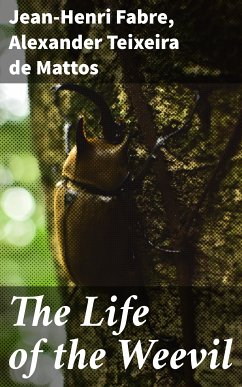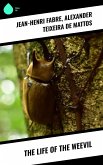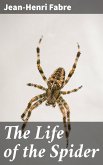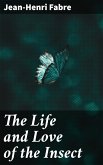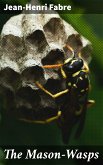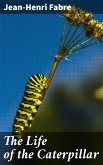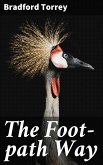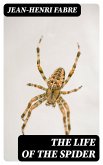In 'The Life of the Weevil,' readers are introduced to a meticulous exploration of both scientific inquiry and poetic observation, nestled within the broader context of early 20th-century naturalist writing. This collection distinguishes itself by offering a compelling blend of Jean-Henri Fabre's keen entomological detail with Alexander Teixeira de Mattos's fluent translations, bringing Fabre's observations on weevils to an English-speaking audience with literary grace. The anthology is remarkable not only for its detailed study of the weevil but also for its approach, which intertwines strict scientific methodology with a deeply personal and reflective narrative style, presenting an engaging read for both the scientist and the layman alike. The collaborative effort between Jean-Henri Fabre, an esteemed entomologist and a pioneering figure in his field, and Alexander Teixeira de Mattos, a renowned translator known for his ability to maintain the original's spirit and depth in another language, creates a unique cultural and scientific bridge. This anthology aligns with the movement towards making science accessible and enjoyable to the public, merging meticulous research with compelling storytelling. Together, their backgrounds offer a rich tapestry that highlights the importance of cross-disciplinary works in breaking down barriers between the scientific community and the general public. 'The Life of the Weevil' provides readers with an unparalleled opportunity to dive into the fascinating world of entomology through a literary lens, making it an essential addition to the libraries of both science enthusiasts and avid readers of natural history. The anthology encourages a dialogue between scientific observation and humanistic reflection, inviting readers to appreciate the complexity and beauty of natures smaller creatures. It is a testament to the power of collaboration across disciplines, serving as a bridge between the empirical and the existential, and a reminder of the endless wonders that careful observation of the natural world can unveil.
Dieser Download kann aus rechtlichen Gründen nur mit Rechnungsadresse in A, B, BG, CY, CZ, D, DK, EW, E, FIN, F, GR, H, IRL, I, LT, L, LR, M, NL, PL, P, R, S, SLO, SK ausgeliefert werden.

